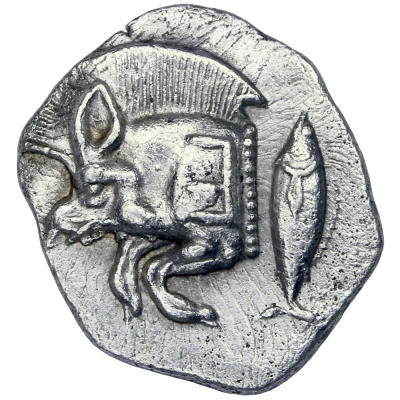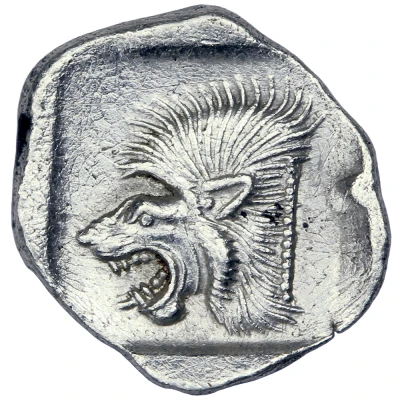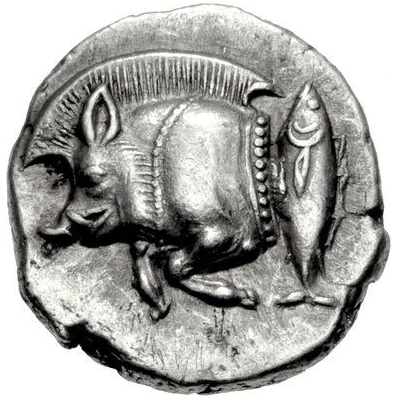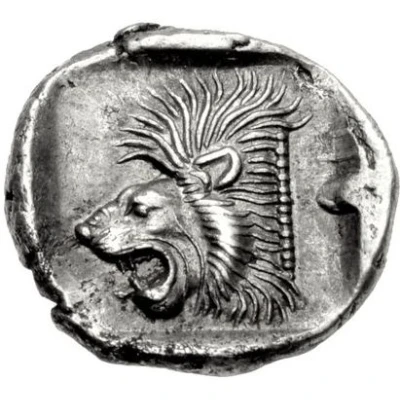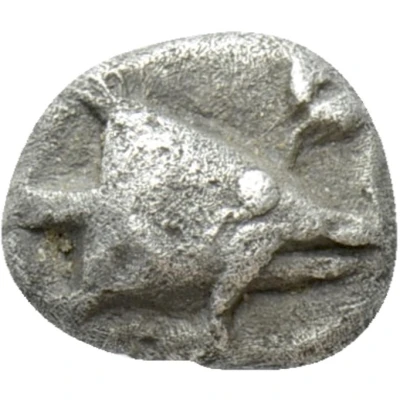
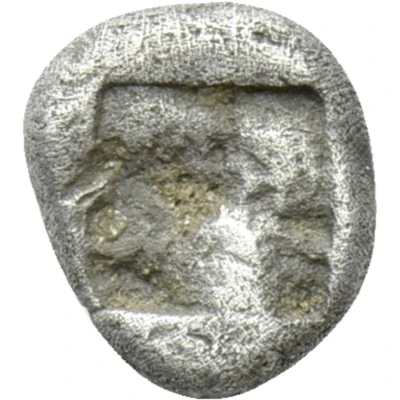

© Numismatik Naumann GmbH
Trihemiobol 600 BC - 500 BC
| Silver | 0.99 g | 9.0 mm |
| Issuer | Kyzikos (Mysia) |
|---|---|
| Period | City administration (600 BC - 1 AD) |
| Type | Standard circulation coin |
| Years | 600 BC - 500 BC |
| Value | Trihemiobol (¼) |
| Currency | Drachm (500-27BC) |
| Composition | Silver |
| Weight | 0.99 g |
| Diameter | 9.0 mm |
| Shape | Round (irregular) |
| Technique | Hammered, Incuse |
| Demonetized | Yes |
| Updated | 2024-10-10 |
| Numista | N#182046 |
|---|---|
| Rarity index | 97% |
Reverse
Quadripartite incuse square
Interesting fact
The Trihemiobol coin from Kyzikos (Mysia) was used as a form of currency in ancient Greece and its design has been found to be quite unique. One side of the coin features a stylized head of a satyr, while the other side features a goat standing on its hind legs. This unusual design has led some historians to believe that the coin may have been used as a form of propaganda, promoting the idea of a strong and powerful Greek state.
